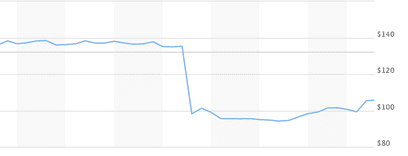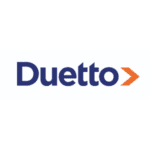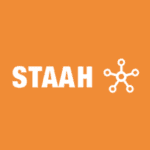For most online booking platforms, the end of 2019 was, to put it mildly, quite rocky.
Indeed, as the decade came to a close, we saw a significant stock decrease for many huge players in the digital travel sector. Take for instance Expedia, which saw a massive 27% drop in early November, or TripAdvisor whose stock lost more than 30% in the same month. And while other actors like Booking.com seems to be holding on for now, this conjoint plunge deserves further investigation.

Who fears the Google?
For quite some time now, travel specialists have speculated that Google will, at some point, become an OTA and compete with the likes of Booking.com and Expedia. And even though this menace has been looming on the market since the earls 2010s, the turning point seems to be closer than ever before. Knowing the handhold of the Californian giant on the Search Engine market, Google’s OTA seems to be hanging like a sword of Damocles over the major players in the digital travel industry.
Moreover, executives at Expedia also stated that, recently, Google search engine had not been very kind to them in terms of referencing. As Google seems to be leaning towards pushing other means of booking hotels (such as Google Hotel Finder of Gmaps), it has become harder and more expensive for OTAs to outrank the online competition.
In short, it’s a hard sell that the current OTAs have what it takes in terms of differentiation to outshine Google future booking platform if it ever comes to that. This fact combined with the continued and necessary reliance on Google search engine makes for an explosive mix according to financial analysts.

Results vs expectations
Maybe in part as an aftermath of the change in SEO stated earlier, Expedia, TripAdvisor, Trivago and others had very disappointing results compared to expectations. These announcements immediately triggered the conjoint travel stock drop along with other consequences. For instance, Expedia let go of both its CEO and its CFO following the crash, meanwhile Trivago surprised everyone by also naming a new CEO in place of its co-founder Rolf Schrömgens.
These major changes in management structures are far from innocuous. In fact, it can be interpreted as the companies understanding the need for a new strategical approach as well as new captains ahead of a sea full of threats and challenges. How those leaders will adapt (or not) their business model to address said problems will likely be determined in the near future.
Who doesn’t like change?
If we take a step back and think about the question on a more strategic and global level, we can find yet another explanation. In the hospitality industry, travel habits are in constant evolution. This phenomenon is emphasized since the digital revolution, as technology can throw our lifestyle upside down almost overnight.
In this context, it can be hard for travel companies to keep up with this state of constant transformation. As we work with hoteliers on a daily basis, we started to feel such a shift happening in the industry since around 2015. This can only be described as a deep change in paradigm which is on its way to shake the online travel market.
During the last 10 years or so, travelers got used to booking their hotel stay online, mainly through OTAs. But as time went by and OTAs model stagnated, travelers and hoteliers expectations have started to shift. On the hotels’ side, GMs are getting tired of the more than strict conditions imposed on them by OTAs (mainly the rate parity, the high commissions and data ownership). This triggered a trend called “return to direct” which urges hoteliers to develop a direct booking strategy instead of solely relying on OTAs. On the travelers’ side, the key words are personalization and closeness. Indeed, the latest generations of travelers (i.e. Millennials and Gen Z) hate to be treated as just one pawn on the chessboard. They are looking for real human interaction over mindless computing/OTA standardized offerings and are judging which hotels would be the best fit for them.
The point is that all these trends are moving away from what OTAs currently provide. This is why we believe that the financial market might just be catching up on this change in paradigm in the travel industry and judging OTAs current business models as unfit for what is to come in the near future.
What consequences for hoteliers?
Let’s now take a moment to think about how all this will impact hoteliers going forward. At first glance, we might think that the consequences will be negative as the global number of reservations made through OTAs will be going down. However, this is actually a unique opportunity for hotels to differentiate themselves from the crowd by adopting a strategy that answers this change in paradigm.
To help hotels achieve this differentiation and customize prices and services to the guest, new generation selling models are flourishing on the market, a few of which are listed below:
- Upselling Solutions – These tools are designed to encourage guests to book a higher category room and/or additional services on hotels website. This allows for increased personalization and website revenue.
- Online Concierge Services – Digital sources (i.e. app, terminal, …) that can be used to handle different hotel needs, from reception to drink/food orders, … This can help improve guest experience and personalization.
- Customized direct booking models – The fixed price model is dead and will be soon replaced by flexible and customized pricing models, 100% focused on the guest, like attribute-based pricing (1) and negotiation-based pricing solutions (2).
- 1. “Attribute-based pricing”: a traveler picks the things they want in a room — such as a king-size bed, extra-soft pillows, or a location on a high floor and in a quiet zone of the hotel — à la carte. Once they’ve selected a bundle of options, the hotel provides a custom price.
- 2. “Negotiation-based pricing”: a traveler picks the room they want and negotiates online the price on the hotel website.
However, it is important to remember that the biggest impact a hotel can make is achieved on an individual level, by adopting a welcoming philosophy and delivering the best possible guest experience.



















